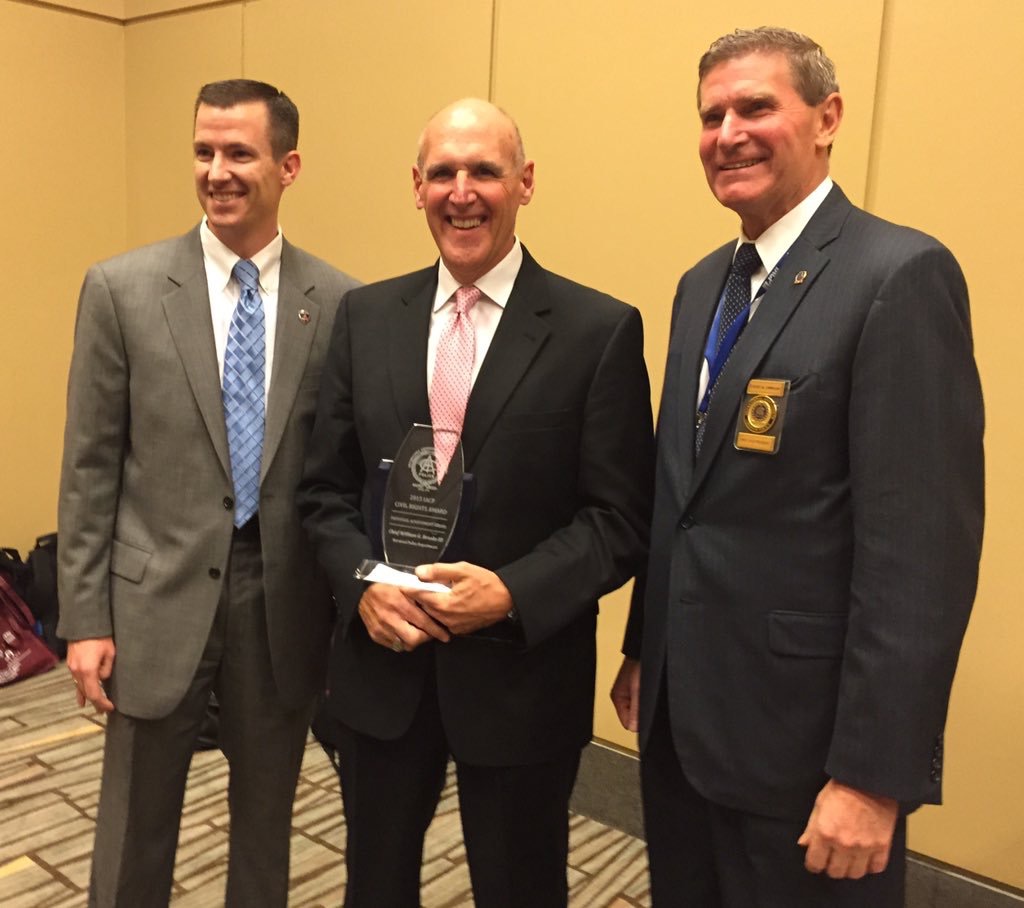Massachusetts Police Chief, Nationally Recognized Eyewitness ID Expert Receives Civil Rights Award
10.30.15
By Nick Moroni
Bill Brooks, Chief of the Norwood Police Department in Massachusetts, received the Civil Rights Award for Individual Achievement at the International Association of Chiefs of Police (IACP) annual conference in Chicago last weekend for his work around eyewitness identification reform.
Chief Brooks has devoted much of his nearly 40-year career in law enforcement to advocating for evidence-based police practices in his home state of Massachusetts and in states and localities around the nation. He is a nationally recognized expert on eyewitness identification and, largely in partnership with the Innocence Project, has led trainings for police departments in nearly two dozen states, among them: Arizona, California, Connecticut, Delaware, Florida, Georgia, Idaho, Illinois, Maryland, Massachusetts, Michigan, Montana, Nebraska, Nevada, New Hampshire, New York, Oklahoma, Pennsylvania, Utah, Washington and Vermont.
Some of these states require eyewitness identification best practices, and others contain departments that have voluntarily adopted these reforms. In Massachusetts, Chief Brook’s former department, the Wellesley Police Department, was one of the first police agencies in the state to adopt eyewitness identification best practices. Presently, the majority of departments in Massachusetts use best practices and a legislative effort is underway to ensure uniform statewide adoption of eyewitness identification reform.
Eyewitness misidentification is the leading contributor to wrongful conviction, having played a role in 71 percent of the nation’s 333 such cases which resulted in DNA exonerations.
For specific information on scientifically supported eyewitness identification best practices,
click here
.

Leave a Reply
Thank you for visiting us. You can learn more about how we consider cases here. Please avoid sharing any personal information in the comments below and join us in making this a hate-speech free and safe space for everyone.